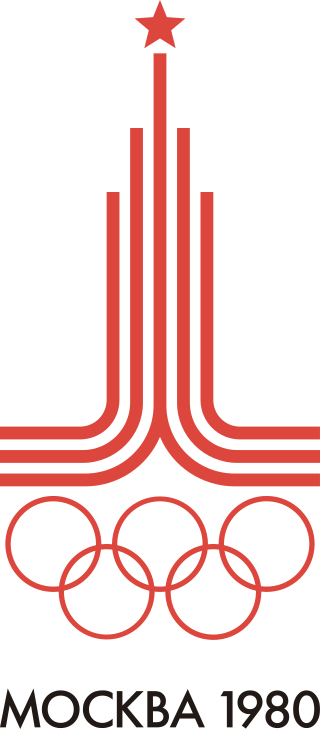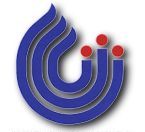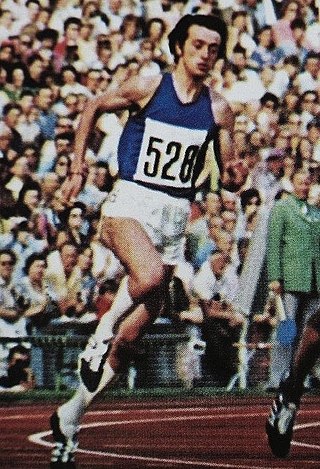
The 1980 Summer Olympics, officially known as the Games of the XXII Olympiad and officially branded as Moscow 1980, were an international multi-sport event held from 19 July to 3 August 1980 in Moscow, Soviet Union, in present-day Russia. The games were the first to be staged in an Eastern Bloc country, as well as the first Olympic Games and only Summer Olympics to be held in a Slavic language-speaking country. They were also the only Summer Olympic Games to be held in a self-proclaimed communist country until the 2008 Summer Olympics held in China. These were the final Olympic Games under the IOC Presidency of Michael Morris, 3rd Baron Killanin before he was succeeded by Juan Antonio Samaranch shortly afterward.

The World Athletics Championships, known as the IAAF World Championships in Athletics until 2019, are a biennial athletics competition organized by World Athletics, formerly International Association of Athletics Federations. Alongside Olympic Games, the championships represents the highest level of senior international outdoor athletics competition for track and field athletics globally, including marathon running and race walking. Separate World Championships are held by World Athletics for certain other outdoor events, including cross-country running and half-marathon, as well as indoor and age-group championship.

The 1st World Championships in Athletics were run under the auspices of the International Association of Athletics Federations and were held at the Olympic Stadium in Helsinki, Finland between 7 and 14 August 1983. Despite the existence of previously held championship events in both 1976 and 1980, this 1983 championship was marked as the inaugural World Championship.

Nikolai Yefimovich Andrianov was a Soviet and Russian gymnast.

Field hockey made its debut at the Modern Olympic Games as a men's competition in the 1908 Games in London. It was removed from the Olympic schedule of the Summer Olympic Games for the 1924 Paris Games and was reintroduced in the 1928 Amsterdam Games. The Women's field hockey was introduced into the Olympic programme at the 1980 Moscow Olympics.

Aleksandr Nikolaevich Dityatin is a retired Russian gymnast, three-time Olympic champion, and Honoured Master of Sports of the USSR. Winning eight medals at the 1980 Summer Olympics, he set the record for achieving the most medals of any type at a single Olympic Games. The American swimmer Michael Phelps has now twice equalled this record, at Athens 2004 and Beijing 2008. Dityatin competed for the Leningrad Dinamo sports society.

The men's 200 metres was an event at the 1980 Summer Olympics in Moscow. The competition was held on July 27, 1980, and on July 28, 1980. There were 57 competitors from 37 nations. The maximum number of athletes per nation had been set at three since the 1930 Olympic Congress. The event was won by 0.02 seconds by Pietro Mennea of Italy, the nation's first victory in the event since 1960 and second overall. This winning margin remains the narrowest in this event at the Olympics since the introduction of fully automatic timing. Great Britain earned its first medal in the men's 200 metres since 1928 with Allan Wells' silver. Don Quarrie of Jamaica, the defending champion, took bronze. Mennea and Quarrie were the fifth and sixth men to earn multiple medals in the event.

The men's high jump event at the 1984 Summer Olympics in Los Angeles, California, was held at the Los Angeles Memorial Coliseum on 10–11 August 1984. Thirty athletes from 20 nations competed. The maximum number of athletes per nation had been set at 3 since the 1930 Olympic Congress. The event was won by Dietmar Mögenburg of West Germany, the nation's first victory in the men's high jump. Patrik Sjöberg's silver was Sweden's first medal in the event since 1920. Zhu Jianhua won bronze in the People's Republic of China's first appearance. The United States, which had made the podium in each of the 18 editions of the high jump before the 1980 boycott, now missed the podium for the first time in which the country competed, as Dwight Stones in fourth place fell just short of becoming the first man to earn three medals in the event.
The men's discus throw event at the 1980 Summer Olympics in Moscow, Soviet Union had an entry list of 18 competitors from 12 nations, with one qualifying group and the final (12) held on Monday July 28, 1980. The maximum number of athletes per nation had been set at 3 since the 1930 Olympic Congress. The event was won by Viktor Rashchupkin of the Soviet Union, the nation's first medal and first victory in the men's discus throw. Imrich Bugár put Czechoslovakia back on the podium in the event after a one-Games absence, taking silver. Luis Delís earned Cuba's first men's discus throw medal with his bronze. The United States, which had earned at least one medal in every appearance of the event prior to 1980, missed the podium due to the boycott.
The men's 400 metre freestyle event at the 1980 Summer Olympics was held on 24 July at the Swimming Pool at the Olimpiysky Sports Complex.
The women's 100 metre freestyle event at the 1980 Summer Olympics was held on 20 and 21 July at the Swimming Pool at the Olimpiysky Sports Complex.
The women's 200 metre breaststroke event, included in the swimming competition at the 1980 Summer Olympics, took place on July 23, at the Swimming Pool at the Olimpiysky Sports Complex in Moscow, Soviet Union. In this event, swimmers covered four lengths of the 50-metre (160 ft) Olympic-sized pool employing the breaststroke. It was the thirteenth appearance of the event, which first appeared at the 1924 Summer Olympics in Paris. A total of 25 competitors from 18 nations participated in the event.
The women's 4 × 100 metre freestyle relay event at the 1980 Summer Olympics was held on 27 July at the Swimming Pool at the Olimpiysky Sports Complex.
The women's 4 × 100 metre medley relay event at the 1980 Summer Olympics was held on 20 July at the Swimming Pool at the Olimpiysky Sports Complex.

The men's marathon at the 1980 Summer Olympics in Moscow, USSR had an entry list of 76 competitors, with 74 athletes from 40 nations starting and 53 runners finishing the race held on Friday 1 August 1980. The maximum number of athletes per nation had been set at three since the 1930 Olympic Congress. The event was won by Waldemar Cierpinski of East Germany, the second man to successfully defend Olympic gold in the marathon. Both the Netherlands and the Soviet Union won their first men's Olympic marathon medals. The winning margin was 17 seconds.
These are the official results of the Women's Pentathlon competition at the 1980 Summer Olympics in Moscow, USSR. There were a total number of 19 participating athletes, with the competition held on 24 July 1980. This was to be the last Pentathlon competition at this level as the Heptathlon subsequently replaced it in 1984 and became the multi-event competition for women.
The men's 400 metres was an event at the 1980 Summer Olympics in Moscow. The competition was held from July 27 to July 30, 1980. Fifty athletes from 32 nations competed. The maximum number of athletes per nation had been set at 3 since the 1930 Olympic Congress. The event was won by 0.24 seconds by Viktor Markin of the Soviet Union, the nation's first title in the men's 400 metres and first medal in the event since 1956. With the United States boycotting the Games, the country was not represented on the podium for the first time since 1920. Australia earned its first medal in the event with Rick Mitchell's silver, while East Germany won its first medal with Frank Schaffer's bronze, which was the first medal by any German since the United Team took silvers in 1956 and 1960.

The men's 1,500m metres was an event at the 1980 Summer Olympics in Moscow, Soviet Union. The final was held on Friday 1 August 1980. Forty athletes from 29 nations competed. The maximum number of athletes per nation had been set at 3 since the 1930 Olympic Congress. The event was won by 0.4 seconds by Sebastian Coe of Great Britain, the nation's first championship in the event since back-to-back wins surrounding World War I in 1912 and 1920, and first medal of any color since 1932. East Germany took its first medal in the 1500 metres since starting to compete separately, with Jürgen Straub's silver.

The men's 400 metres hurdles at the 1980 Summer Olympics in Moscow, Soviet Union had a start list of 22 competitors from 19 nations, with three quarterfinals, two semifinals (16), and a final (8) that took place on Saturday July 26, 1980. The maximum number of athletes per nation had been set at 3 since the 1930 Olympic Congress. The event was won by Volker Beck of East Germany, the nation's first medal in the event. Vasyl Arkhypenko earned silver, the second consecutive Games that the Soviet Union reached the podium in the event. Gary Oakes put Great Britain back on the podium after a one-Games absence with his bronze.
The men's 10,000 metres in speed skating at the 1980 Winter Olympics took place on 23 February, at the James B. Sheffield Olympic Skating Rink.











